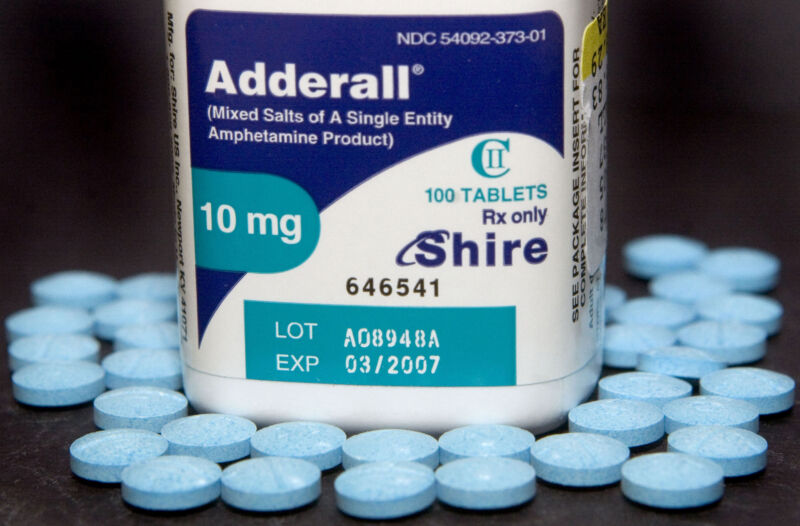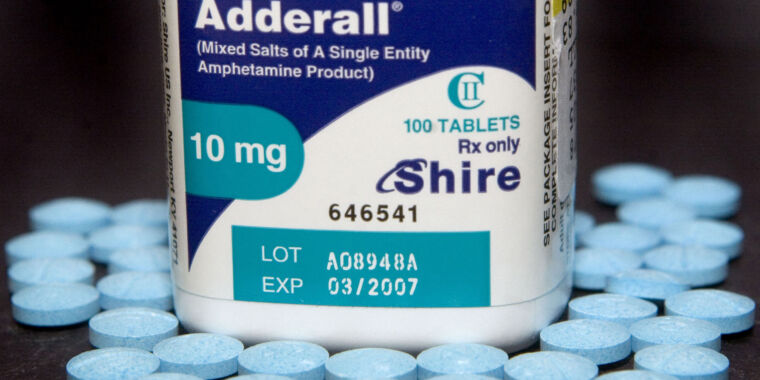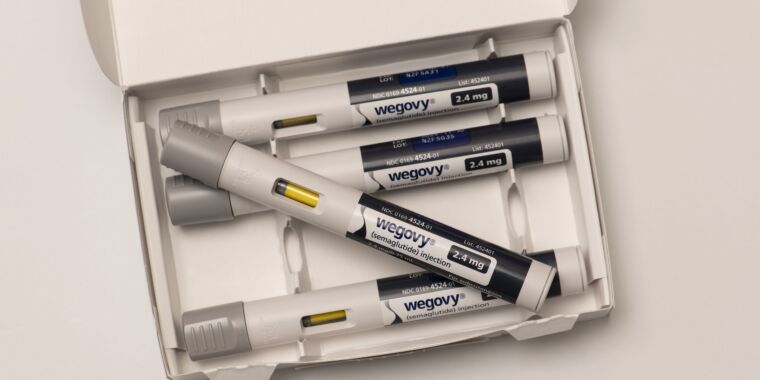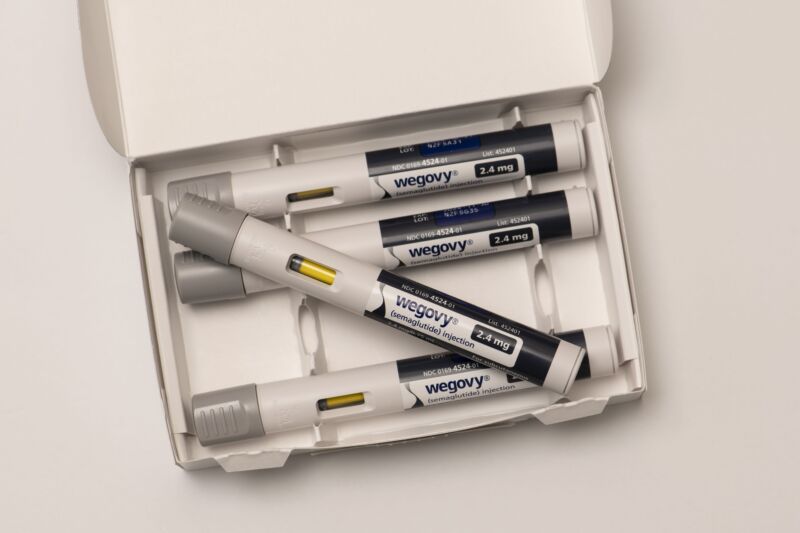Huge telehealth fraud indictment may wreak havoc for Adderall users, CDC warns
Tragic —
The consequences are dangerous, possibly even deadly, for patients across the US.

Enlarge / Ten milligram tablets of the hyperactivity drug, Adderall, made by Shire Plc, is shown in a Cambridge, Massachusetts pharmacy Thursday, January 19, 2006.
The Centers for Disease Control and Prevention on Thursday warned that a federal indictment of an allegedly fraudulent telehealth company may lead to a massive, nationwide disruption in access to ADHD medications—namely Adderall, but also other stimulants—and could possibly increase the risk of injuries and overdoses.
“A disruption involving this large telehealth company could impact as many as 30,000 to 50,000 patients ages 18 years and older across all 50 US states,” the CDC wrote in its health alert.
The CDC warning came on the heels of an announcement from the Justice Department Thursday that federal agents had arrested two people in connection with an alleged scheme to illegally distribute Adderall and other stimulants through a subscription-based online telehealth company called Done Global. The company’s CEO and founder, Ruthia He, was arrested in Los Angeles, and its clinical president, David Brody, was arrested in San Rafael, California.
“As alleged, these defendants exploited the COVID-19 pandemic to develop and carry out a $100 million scheme to defraud taxpayers and provide easy access to Adderall and other stimulants for no legitimate medical purpose,” Attorney General Merrick Garland said in a statement. “Those seeking to profit from addiction by illegally distributing controlled substances over the Internet should know that they cannot hide their crimes and that the Justice Department will hold them accountable.”
Deadly consequences
According to the Justice Department, Done Global generated $100 million in revenue by arranging for the prescription of over 40 million pills of Adderall and other stimulants, which are addictive medications used to treat ADHD (attention-deficit/hyperactivity disorder). Done Global allegedly eased access to the drugs by limiting the information available to prescribers, instructing prescribers to prescribe Adderall and other stimulants even if the patient didn’t qualify, and mandating that the prescribing appointments last no longer than 30 minutes. The company also discouraged prescriber follow-up appointments and added an “auto-refill” feature.
Prosecutors further allege that He and Brody continued with their scheme after becoming aware that patients had overdosed and died.
The CDC cautioned that the disruption from lost access to Done Global prescriptions comes amid a long-standing, nationwide shortage of Adderall and other stimulant medications. For patients with ADHD, the disruption could be harmful. “Untreated ADHD is associated with adverse outcomes, including social and emotional impairment, increased risk of drug or alcohol use disorder, unintentional injuries, such as motor vehicle crashes, and suicide,” the CDC warns. Further, a loss of access could drive some to seek illicit sources of the drugs, which could turn deadly.
“Patients whose care or access to prescription stimulant medications is disrupted, and who seek medication outside of the regulated healthcare system, might significantly increase their risk of overdose due to the prevalence of counterfeit pills in the illegal drug market that could contain unexpected substances, including fentanyl,” the CDC said. Fentanyl is a synthetic opioid that is up to 50 times stronger than heroin and 100 times stronger than morphine.
The Drug Enforcement Administration recently reported that seven out of every 10 pills seized from the illegal drug market contain a potentially lethal dose of illegally made fentanyl, the CDC noted.
This post was updated to clarify that the DEA’s data indicated that 70 percent of illicit pills seized contained “potentially” lethal doses, which was not included in the CDC’s warning.
Huge telehealth fraud indictment may wreak havoc for Adderall users, CDC warns Read More »


